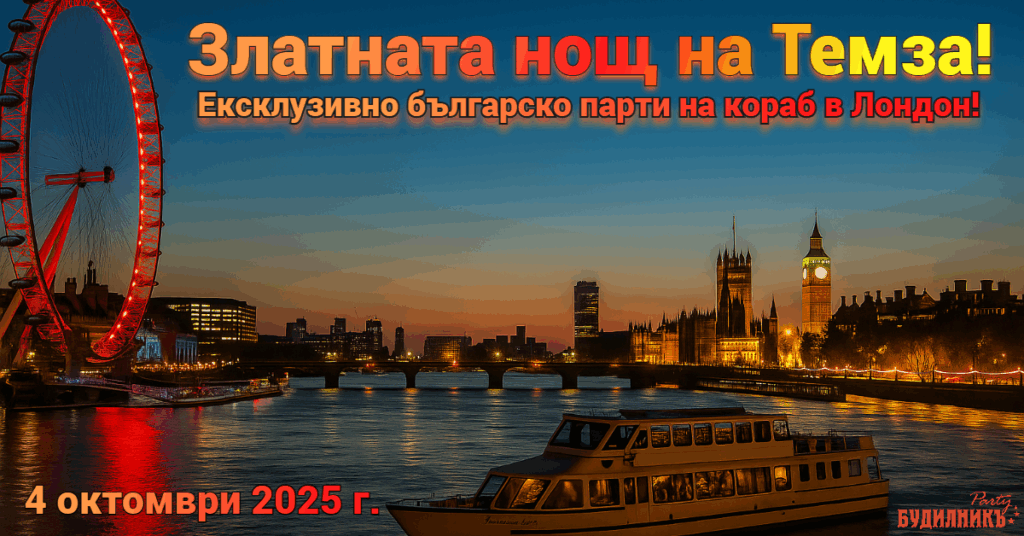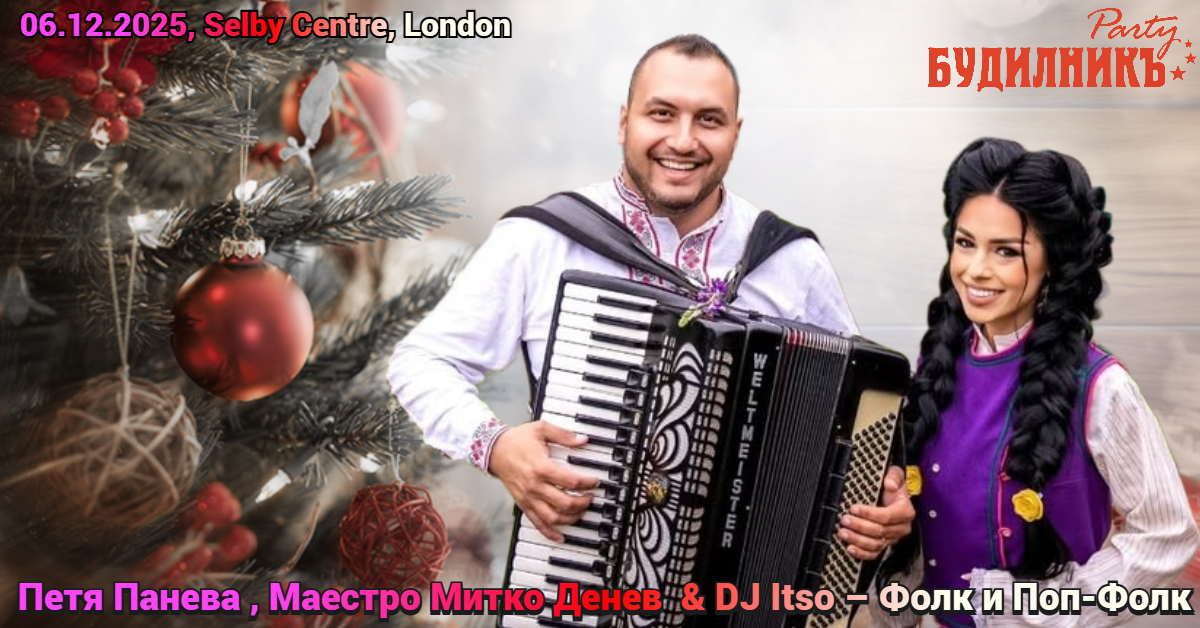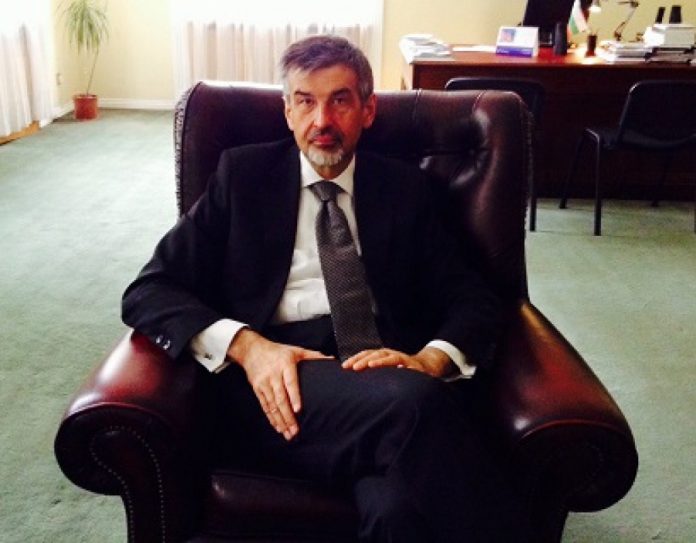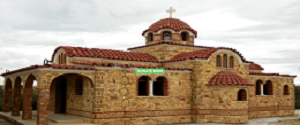By Rumy Vakarelska
Since His Excellence (HE) Mr Konstantin Dimitrov arrived in the UK as Bulgaria’s highest representative in this country two and a half years ago, the Bulgarian government held two general elections in two consecutive years and the European elections last spring.
In addition, a rare visit of the Bulgarian President Rossen Plevneliev to Her Majesty the Queen took place to make him only the second top Bulgarian official to meet the long-standing British Monarch, following a similar mission fulfilled by Peter Stoyanov, a former Bulgarian President, 13 years ago.
However, a lot of questions before Bulgaria and the Bulgarian community abroad, and in a different context at home, remain open as anti-EU immigration arguments occupy persistently the top of UK’s own pre-elections agenda in May 2015, leading to queries about the further representation of this compatriot community in Britain.
Q: Mr Dimitrov: What is the Bulgarian government planning to do to improve the situation of Bulgarians in the UK in the face of the new and ever so uninformed anti-EU immigration political and media rhetoric ahead of UK’s general elections?
HE KD: There are worrying articles in the UK press, but I cannot comment on them, I rather would respond to governmental and parliamentary announcements, as well as David Cameron’s traditional autumn statement coming up by early December this year, which is expected to touch on that subject. There are currently no official changes to the NI numbers registration system or to the much spoken restrictions in the benefits system.
Q: What are the prospects for the Bulgarian citizens in the UK compared to citizens of other EU countries?
HE KD: Bulgarian citizens are among the best EU citizens in the UK as they work and they respect the law. They are mostly at active working age. Currently, there are only Bulgarian 1500 benefit recipients (Editor’s note: those include qualifying benefits such as a child benefit for any child born in the UK until the age of 16 and pensions for long-standing workers), but they are not a burden to the UK society as together with the rest of CEE EU workers they contribute 34 pc more net income to the society than they take away, according to UK’s own most recent statistics.
Some 79pc of the Bulgarians in the UK work and this makes for a higher percentage than the EU workers average as the figure for all EU ex-pats in the UK is between 76 and 80 pc. Our workers tend to fill in gaps in the employment market, while the average participation for the UK-born population is 75pc. In terms of their profile, Bulgarians at large speak English, are well integrated in the UK society, they do not take part at large in crime activities, so any claims that they are not a coherent segment of the society have no grounds.
Q: What do you think is the fabric of the Bulgarian community in the UK?
HE KD: The Bulgarian Embassy in the UK is not authorised to do a social break-down of the Bulgarians in the UK, but my impressions are that there are about 6000 Bulgarian students in the UK, a well-established group of medical doctors, professional services graduates and liberal arts professionals, nurses and construction workers. We tend to use the latest UK statistics about the Bulgarian community here, namely of the Office of National Statistics (ONS). Saying that it is not clear if temporary workers, who normally fill in vacancies in the agricultural sector as temporary seasonal workers, will continue to do so with the same status or not, as Bulgarians received free access to the EU’s labour market only at the start of 2014.
Q: Do you use as an argument in support of the Bulgarians in the UK, as a fraction of the much spoken EU migrants, that many of them have got the right to vote in the UK’s general elections, so they need to be addressed as equal members of the UK public?
HE KD: Yes, I am. Further on, I would also like to call on the Bulgarian citizens to take part in UK’s public debate and speak about themselves defining who they are, while we are ready to respond to specific UK media enquiries.
Q: Bulgarians voting abroad still do not have their electoral district in Bulgaria, who is representing their rights in Bulgaria?
HE KD: The Bulgarian Parliament will decide on this as new legislation regarding electoral rights abroad is needed for this to happen. As far as the Bulgarian mission here is concerned, we did our best to open a sufficient number of polling sections at the European elections earlier this year and at the most recent general elections on November 5. I regret that we underestimated the demand in Barking in London, where people needed to queue.
Q: Do you think that Bulgarians in the UK have moved up on the social ladder by being here, as this is a big debate in the UK society now with a focus on the generational gap whereby older generations seem to have achieved more in their lifetime than potentially is expected their children to do?
HE KD: Bulgarians in the UK who are good citizens and have integrated in the society well do not experience problems with social mobility. They live in a country which is highly competitive, has a relatively high growth and is a G8 country. However, we always advise anyone who comes here to find employment before they physically come to the country. The role of the Bulgarian state is not to stimulate emigration, but to make sure that Bulgarians abroad know their rights as workers and they are not a subject of exploitation. To achieve this, we work closely with the Department of Work and Pensions (DWP), making our best that this will not happen. We also run on a regular basis labour market shows in London and in Edinburgh to attract Bulgarian graduates from the UK to go back to work and live in Bulgaria.
Q: Are you planning to run new services that help better Bulgarians in the UK with administrative tasks related to their Bulgarian citizenship and other issues that may be related with their interests in Bulgaria such property ownership and management, as some of those are not currently on offer in London or are not easy to get?
HE KD: We are already running a number of such administrative services, although there might be a need for new services in the future. We have just got the long-planned new telephone system that may facilitate access to our Consular section services and staff, including our new head of the Consular Department, Ms Maria Angelieva Koleva, who could be reached for the first time directly on her UK Mobile 07778840226.
‘Budilnik’ s newspaper new English Language Page contains original journalistic content in print and online on key developments in Bulgaria and Britain and on UK’s ex-pat life, aiming to build a higher and well-informed mutual awareness of the two countries and the viable prospects ahead of both. It will include exclusive articles, interviews and pictures about business, investment, work life, politics, culture and identity, which are of specific interest to the Bulgarian community in the UK and across the world, also known as ‘the Other Bulgaria’. Interested sponsors for this page, please contact contributing editor Rumyana Vakarelska (FT Group, London Press Service, WSJE, the Guardian among a few), Team New Europe, an editorial and public affairs consultancy in London by email: rumy.vakarelska@gmail.com




















